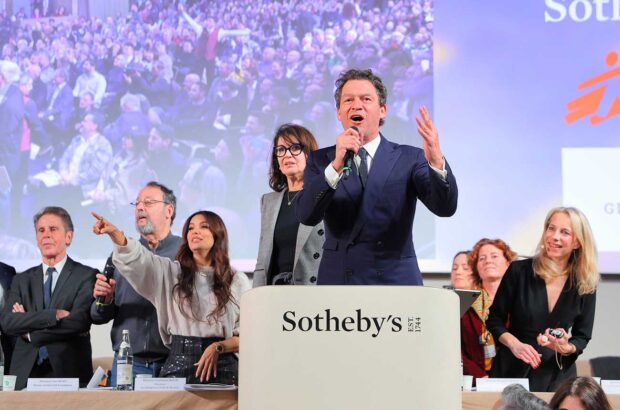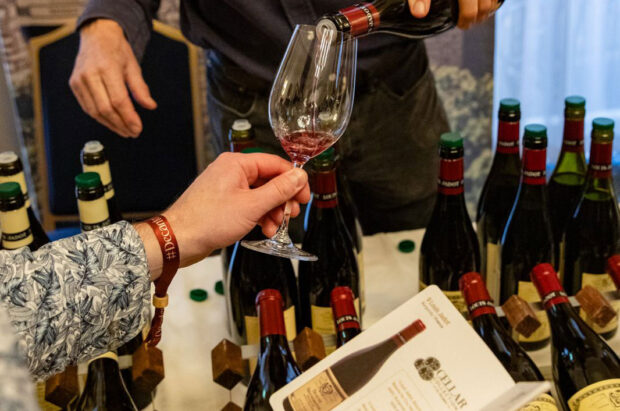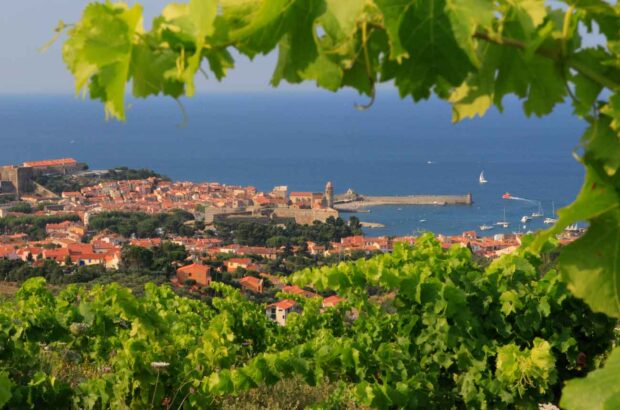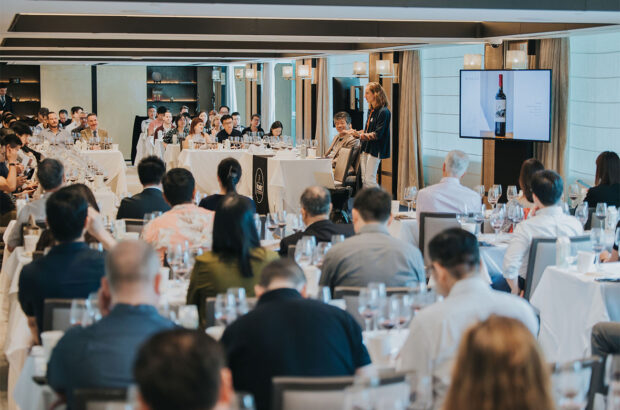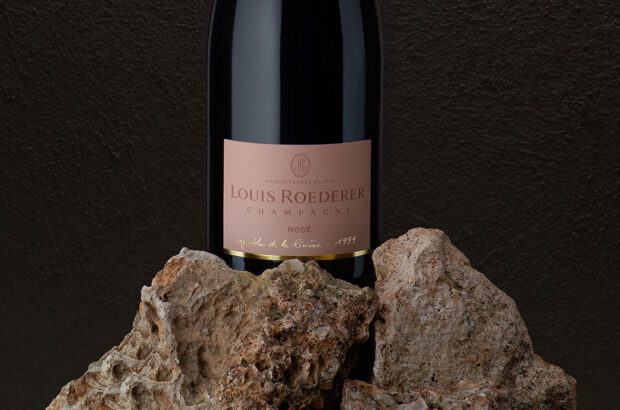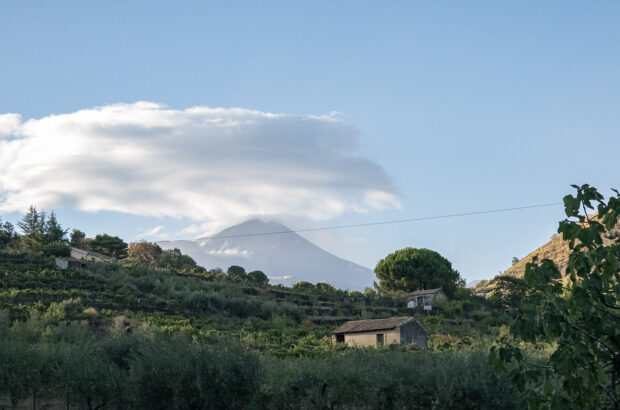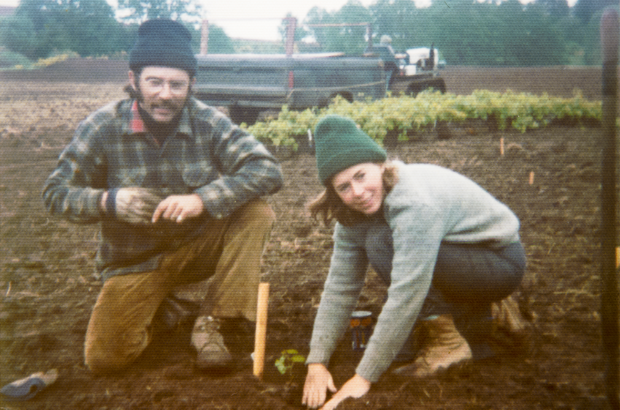Grape wine may have a recent history in Asia compared to its long reign in the west, but the popularity of Asian wine is now rocketing ahead. Japan’s wine industry has been seriously active for over 25 years; while in China French, Chilean and American companies are planting vines furiously. Thailand’s first full production winery, Chateau De Loei, got off the ground during the last decade, and has since been followed by two other facilities. In Korea, 40,000 vine cuttings from Germany produced the first vintage of Majuang wine in 1975. Even Bali now produces wine from table grapes, with more than one vintage each year, thanks to a favourable tropical climate.
Still, Asia must be considered a newcomer in terms of understanding and appreciating wine as part of everyday life. However, perceptions are changing fast as younger people adopt wine as part of their lifestyle while studying overseas, and the ranges imported by supermarkets and restaurants are expanding rapidly, despite bureaucratic glitches. As wine shifts in, spirits and traditional alcoholic beverages are shipping out. Health aspects have contributed to the recent boom, but ultimately the test is what’s in the bottle. Wine is reaching new customers, from Chiang Mai to Kota Kinabalu; while tireless sommeliers, beverage managers, members of the media and educators are actively campaigning, encouraging and titillating tastebuds to promote a whole new wine culture.
So, who are the key people in Asia’s wine boom? It’s difficult to ignore those who have made worthy contributions for the sake of producing a finite list, but every person mentioned here has an arm-long record of participation in wine associations (some of which they even started), whether as honorary members or as key players. They are passionate and knowledgeable about wine, often in relation to food, and have played key roles in converting consumers, educating trade and public alike, lifting standards and promoting the globalisation of labels or styles.
Barry Burton (Hong Kong).University librarian Barry Burton has lived in Hong Kong since 1973. His interest in wine began at the age of 15, while he was working in a restaurant in England (he sampled Yquem 1945!). Burton’s contribution to Hong Kong’s wine scene can be likened to the performance of an all-round athlete – he writies, collects and judges, as well as orchestrating a number of wine societies. Burton has been chairman of the Hong Kong Wine Society since 1982, and is also Regent of the Commanderie de Bordeaux, Hong Kong.
Burton writes about wine for the South China Morning Post, for trade publication Premier Cru and for Wine & Dine Hong Kong. He has given talks on matters relating to wine in Italy and Australia, and has judged wine competitions since 1989. ‘Bulk-imported French wines that were bottled in Hong Kong were the vogue early on,’ he recalls. ‘They were considerably cheaper than wine imported in the bottle. Now global wines are available, and tastes are changing. Three years ago, 70% of the wines drunk here were French. Now Australia and Chile are popular, and Italy is gaining ground. Collectors are serious and drink their great bottles.’ Burton’s own collection spans 1,000-plus bottles (‘mainly red and Old World’), and he enjoys matching wines with Sichuan or Cantonese food, depending on his mood.
Han-Jung Suh (Korea)
With 23 years of on-the-job experience, Han-Jung Suh is the most experienced sommelier in Korea; he has worked as a bartender, wine steward, sommelier and is now sommelier-manager at Seoul’s Shilla Hotel, where he’s worked since 1984. While working at the Seoul Plaza in the 1970s, he remembers that only about 40 wines were available, all of which were sold to tourists from designated outlets. While at the Shilla Hotel, Suh has seen the list expand to feature 340 labels. Drinking patterns have changed, too, during that time. ‘Two years ago newspapers said red wine is good for heart disease. Many people changed from white to red,’ he explains.
Aside from chairing the Korean Sommelier Association, Suh writes about wine for local publications and runs seminars for SOPEXA Korea and for readers of local magazine, Cookend. Many Koreans associate him with Majuang, the locally produced wine, after he appeared in its advertisements during the late 1990s. Suh no longer works with Majuang’s producers, but still enjoys their white wine (‘the red could be better,’ he believes). His own preferences are for red Bordeaux, especially Château Batailley in Pauillac.He’s noticed that young Koreans are switching from high- to low-alcohol beverages. Perhaps this has something to do with changing drink patterns. ‘Two years ago women didn’t drink wine at lunchtime, but now about 80% of them do,’ comments Suh.
Wee Jeh Teng (Malaysia)
‘When I told people that I was a wine merchant, I would get really odd looks (“he’s either an alcoholic or he’s mad,” they said),’ claims Wee Jeh Teng of his earliest days in the business. ‘Today there are as many wine merchant start-ups as there are dot.com start-ups!’ Teng is a pioneer importer of lesser-known wines. Mass-production labels were the norm in Malaysia during the 1980s, but Teng sold interesting Italians, Aussies and Californians at his store Barrique Fine Wines. He also supplied leading hotels and restaurants. Spurred on by a hike in wine import duties, Teng wanted to provide creative food and reasonably priced wines, and opened his first café-style eatery, Chinoz, in Kuala Lumpur’s trendy Bangsar area in 1993. The equally fashionable Q*doz followed, pairing an extensive wine selection with eclectic cuisine, then came Café Trilogy and Chinoz on the Park, both featuring cutting-edge Malaysian cuisine – all within the space of five years. As he advises customers in the wine shop or shares a bottle with his restaurant regulars, Teng notes the changes: ‘Ten years ago, you would’ve had difficulty filling a room with people who drank a glass of wine every week. Today wine is a mainstream beverage, enjoyed by a cross-section of consumers,’ he says. Teng stands out from the crowd, both because he knows his stuff and because he shares this knowledge with clients and employees alike.
William W Wongso (Indonesia)
The owner of a Jakarta-based continental bakery/pastry shop and catering company, William Wongso has introduced many enthusiasts to their first vintage sip over wine-focused dinners at William Kafe Artistik, his unlicenced, semi-private venue. Wongso’s interest in wine (and its relationship to food) developed during the 1980s while he trained in pastry- and bread-making in Europe. Indonesia’s high wine prices are controlled by the government and three companies. As a result, Wongso feels that locals must begin to understand the principles of tasting and enjoying wine in order to take it up with enthusiasm (beer is freely available in this Moslem country). When it comes to collecting, Wongso believes that too many follow the critics’ recommendations blindly. He tries to promote wine as part of a lifestyle through education – of the public, would-be connoisseurs and trade alike (he first helped translate at SOPEXA seminars in 1955). As chairman of the Chaîne des Rotisseurs from 1986 to 1993, he organised many exclusive wine-tasting events (‘by Indonesian standards, anyway,’ he says). Wongso has helped to start other societies, including the Jakarta Wines Society in 1992, the International Wine & Food Society and the popular Jakarta Wines & Spirit Circle.
Quietly spoken and sincere, Wongso’s dedication is recognised both locally and abroad. His favourite vineyards are in California, Australia and France.
Hiroshi Yamamoto (Japan)
Hiroshi Yamamoto, a lawyer, got involved with wine in 1949 while helping his brother run Japans’ oldest French restaurant, Ogawaken. Most Japanese recognise his writing: Yamamoto is the author of eight books in Japanese (How to Enjoy Wines, published in 1975 was his first) and translator of 16, including Serena Sutcliffe MW’s Burgundy and David Peppercorn MW’s seminal Bordeaux .
He writes three mornings a week and most weekends, but spends his evenings organising other wine-related activities. These have included getting four wine groups under way, including the Japan Burgundy Wine Association, the Japan Bordeaux Wine Lover Association, and the Japan Wine Importer Association (he is president of the latter).Yamamoto’s first visit to France was in 1968, and he now visits its wine regions three times a year. Bordeaux, Burgundy and Champagne are favourites and, as a consequence, he prefers drinking their wines. He has helped SOPEXA to write pamphlets on a range of vinous subjects, and has been an advisor to the Japan Sommelier Association, both since their inception. This judge of sommelier competitions also loves quality cameras – Leicas and Hasselblads preferred.
Dr Nen Kiong Yong (Singapore)
Dr Nen Kiong Yong pioneered heart surgery in Singapore and Malaysia, so naturally he’s concerned with tracking the relationship between wine and health. In fact, he recently presented a paper on the health benefits of wine consumption to a packed, appreciative audience at an Institute of Masters of Wine Symposium.His interest in wine was triggered 26 years ago by a Latour 1968, which, ‘was like magic,’ he says. In the early 1980s Yong and his wife, Melina, started collecting wine for their personal enjoyment. Two converted walk-in wardrobes, with temperature-control mechanisms, soon proved too small so a refrigerated container (able to store 12,000 bottles) was parked in their garden. In 1985 they started to organise tastings, which were sometimes accompanied by Melina’s legendary cooking. Serena Sutcliffe MW and husband David Peppercorn MW were among the first to conduct tutored tastings for the group. The dinners proved so popular that the Yongs now regularly host 30 guests or more at a time. Visitors have included Michael Broadbent, Robert Drouhin, Olivier Krug, Angelo Gaja, Jack Cakebread, Egon Müller and Leeuwin Estate’s Denis Horgan. The menu features French, Chinese, Thai or local cooking, depending on the wines. A judge, festival wine coordinator and columnist for Singapore’s Business Times, Yong was World Chairman of the International Wine and Food Society from 1992 to 1996, and gave a speech at the 50th Anniversary Celebrations of the Academie du Vins de Bordeaux in 1998. Yong also stores wine in Europe, some of which was sold at Sotheby’s in 1999. ‘Melina and I have enough wine to last us two lifetimes,’ he explains.
Special mention:
Lau Chi-Sun (Hong Kong), editor of Hong Kong’s Wine Now magazine (founded in 1998), the only wine publication to reach Hong Kong’s Chinese-speaking consumers and to be distributed in China and Taiwan.David Karukin (Thailand), wine consultant for Foodland supermarkets, for teaching Thai novices about wine since the 1960s. Former students now run successful restaurants and retail outlets.Wilson Kwok (Hong Kong), for his entrepreneurial spirit as a restaurateur and his devotion to good food and wine, as witnessed by his involvement with many food societies in Hong Kong. Jason Lau (Taiwan), a wine retailer who has translated wine books and co-authored the first Chinese-French wine glossary in an effort to standardise wine terms.Sun-Tschu Lie (Korea), for bringing an oenology degree, experience and vine cuttings from Germany; for producing Korea’s first wine, Majuang, in 1975; and for promoting wine clubs throughout Korea. Jeff Tseng (Taiwan), for contributing to Taiwan’s 1990s’ wine boom through his wine column in Min Sheng Daily, and for persevering with a retail outlet and wine clubs.Satayaphorn Tantemsapya (Thailand), a former banker who owns a retail outlet for wine and who wrote the first wine book to be published in the Thai language, All About Wines.





